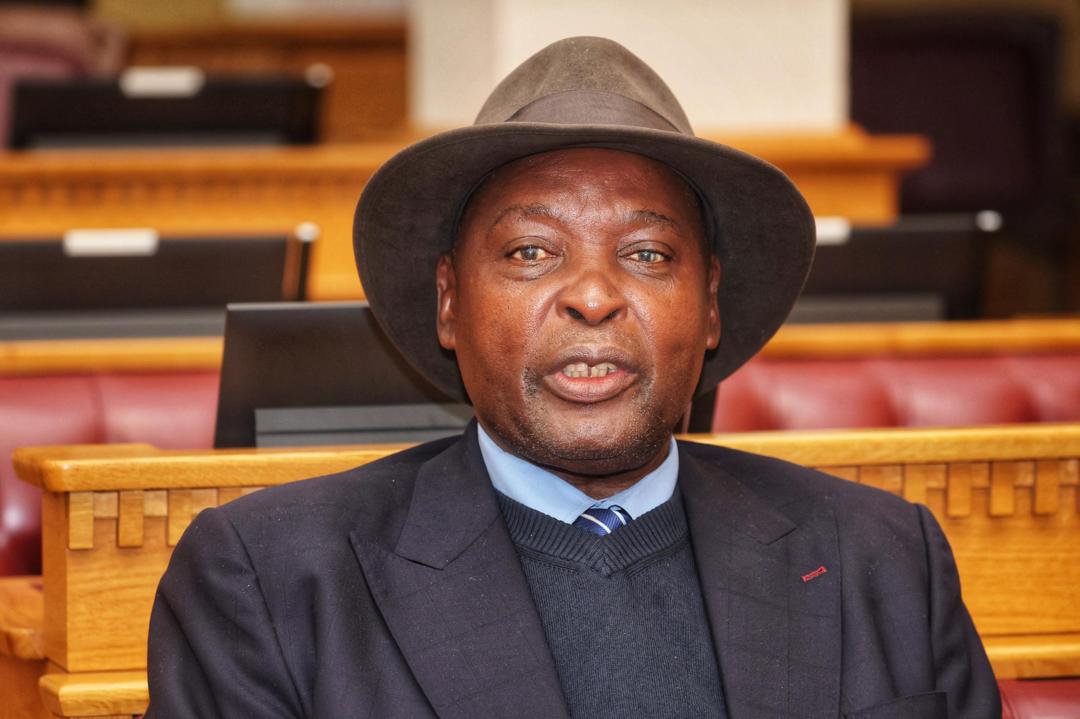The Ministry of Agriculture, Water and Land Reform has been blasted for returning N$98 million meant for the department of land reform to the treasury.
Commentators have described this as disgraceful.
According to the ministry’s audited financial report for 2021/22, which was tabled in parliament two weeks ago, the Department of Agriculture and Land Reform failed to use its allocated budget.
In the report, auditor general Junias Kandjeke recommended that the executive director of agriculture, water and land reform, Ndiyakupi Nghituwamata, put measures in place to avoid under-expenditure and ensure that all planned programmes are implemented.
Political analyst Rui Tyitende says this practice is to the detriment of development and tantamount to “economic and social terrorism”.
“We all know the issues facing this ministry. This money could have been used to expedite the resettlement process in addition to battle other social ills, but it has been sent back to the treasury. This is a crime against the people,” he says.
Tyitende says this practice, which has become the norm at many ministries, raises questions about accountability mechanisms at state agencies.
‘ECONOMIC TERRORISM’
“It comes down to gross incompetence. It is economic and social terrorism. Money goes back into government coffers only to be looted through corrupt practices, and until we have real accountability at the top, the same thing will keep happening,” he says.
Echoing these sentiments is the secretary general of the All People’s Party (APP), Vincent Kanyetu.
He says the practice of government ministries and agencies returning money to the treasury exacerbates poverty.
“It is shameful that people who are entrusted with the management of these resources see it fit to return the money to treasury while the masses are sitting with landlessness and other socio-economic issues that need to be addressed,” Kanyetu says.
Describing the issue as common practice, he called on executive directors of ministries that return money to the state purse to come clean on whether they initially exaggerate their budgetary needs or simply fail to meet their targets.
“Do we have incapable people running our ministries, or are the ministries deliberately inflating their budgets?” he asks.
‘COMPLETE OVERHAUL’
On his part, official opposition leader and Popular Democratic Movement president McHenry Venaani calls for a complete overhaul of the country’s entire land reform process.
He says it was started on a bad footing, and allowing it to carry on would perpetuate the problem of landlessness.
“We already have a situation where land is allocated to people who do not use it productively. This already shows the government has a lack of appetite to address this issue of land reform,” Venaani says.
“This also explains why the state will retain so much money and send it back to the coffers, while there are so many would-be farmers who are currently landless,” he says.
DECENTRALISATION NEEDED
Weighing in on the issue, Mike Kavekotora, the leader of the Rally for Democracy and Progress, said the entire budgeting process is “a mess”.
“The budgeting process is not priority-driven, nor activity-based. Also, we have people who do not have an understanding of how projects need to be implemented in positions where they are expected to be implementing projects,” he says.
Kavekotora says the tabling of Namibia’s budget is done well into the financial year, leaving little time for actual implementation.
“We have tried to tell the government that this timeline needs to be rectified, but I guess it is something they do not want to look into,” he says.
Kavekotora says the completion of the government’s abandoned decentralisation process could be a solution.
“Decentralisation would make the implementation of the process less cumbersome, but we are here because of the arrogance of the central government, claiming Namibia is a unitary state,” he says.
MINISTRY RESPONDS
Nghituwamata informed Kandjeke in the report that she has taken note of the findings and will ensure that the ministry’s financial position is closely monitored and reviewed on a quarterly basis.
While motivating the ministry’s budget in March this year, deputy minister Anna Shiweda said the ministry acquired eight farms for resettlement, with a combined size of more than 40 thousand hectares at a cost of N$82,9 million during the previous financial year.
She said that the ministry has also resettled 18 beneficiaries, and one co-operative was given three units during the 2021/22 financial year.
For the 2023/24 financial year, a total of N$220,6 million has been allocated to the Department of Land Reform’s programme.
This proposed allocation aims to support land acquisition for resettlement purposes and provide post-resettlement support services.
The government has so far invested N$2,4 billion in its land reform programme, acquiring 571 commercial farms totalling 3,4 million hectares.
So far, 5 480 previously disadvantaged Namibians have been resettled.
However, the majority of farmers are faced with a myriad challenges, including water scarcity, a lack of training, limited farming equipment, limited land due to bush encroachment, and a lack of sufficient funding.
The agriculture ministry is currently in the process of launching the revised national resettlement policy which prioritises underprivileged communities, including generational farmworkers.
Cabinet has approved a revised policy covering the period from 2023 to 2033, replacing the 1991 to 2001 national resettlement policy.
In the new policy, the government has created three different resettlement models: the high-value economic model, the medium-value economic model, and the low-value economic model.
Stay informed with The Namibian – your source for credible journalism. Get in-depth reporting and opinions for
only N$85 a month. Invest in journalism, invest in democracy –
Subscribe Now!










